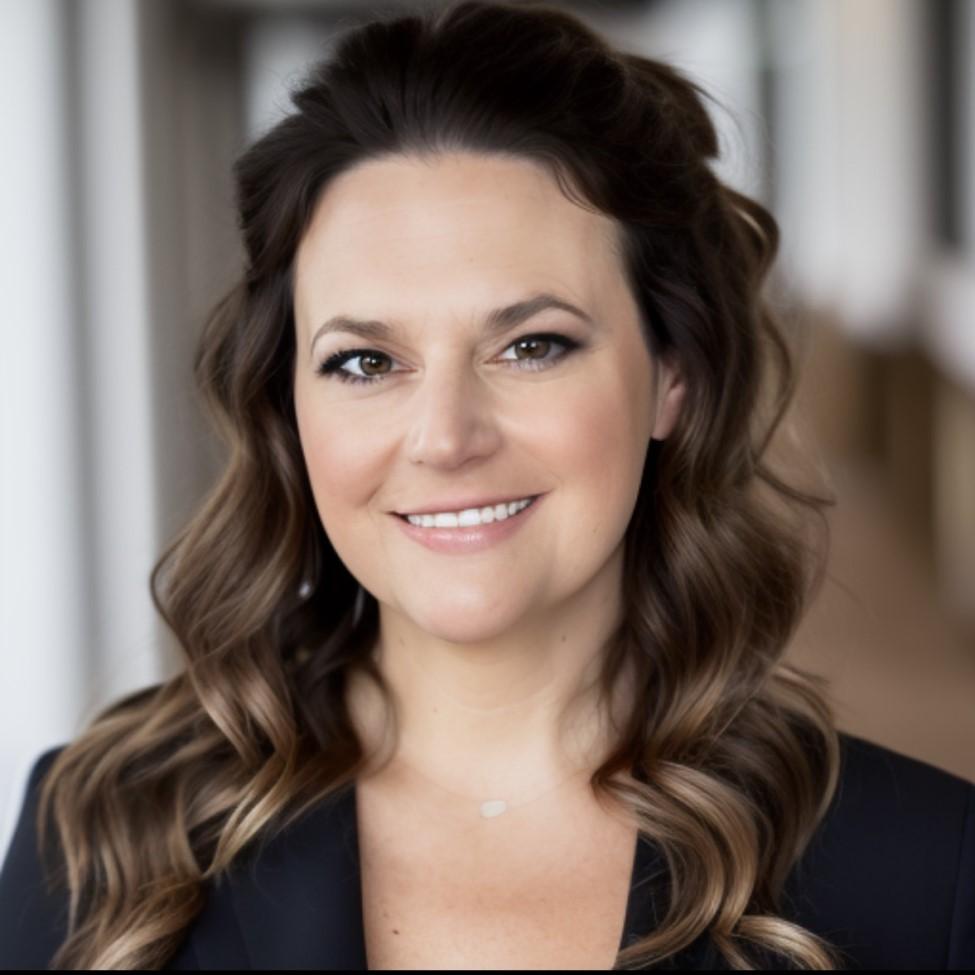
The Oral History of COVID-19 and Black Lives Matter
The COVID-19 pandemic and the Black Lives Matter movement during 2020 forever shaped communities around our nation. Capturing first-hand experiences of how these events impacted people is a critical part of providing primary sources for future researchers, and that’s what Assistant Provost and Clinical Associate Professor of History Maria Iacullo-Bird, PhD, set out to achieve with her Oral History Project.
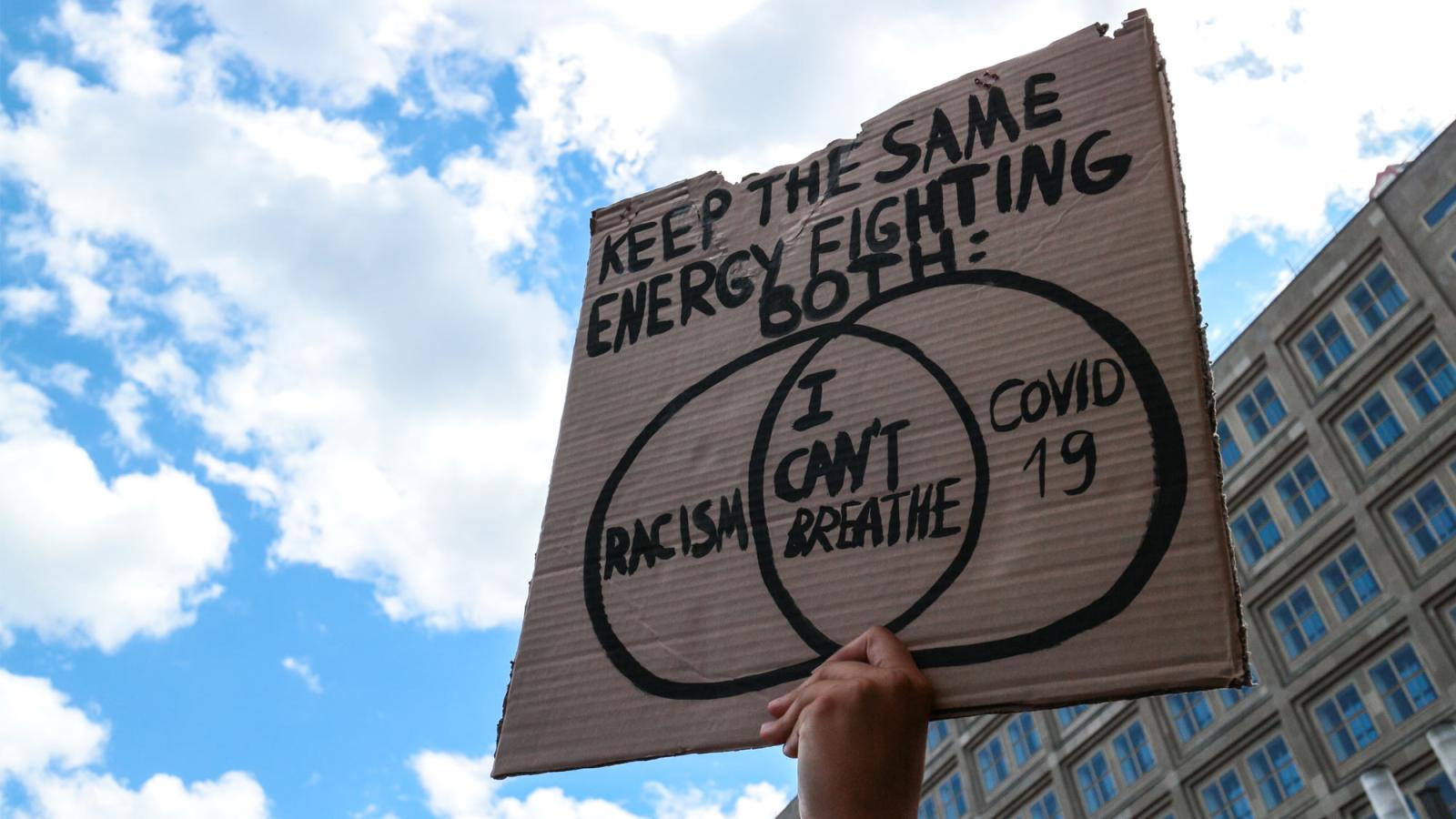
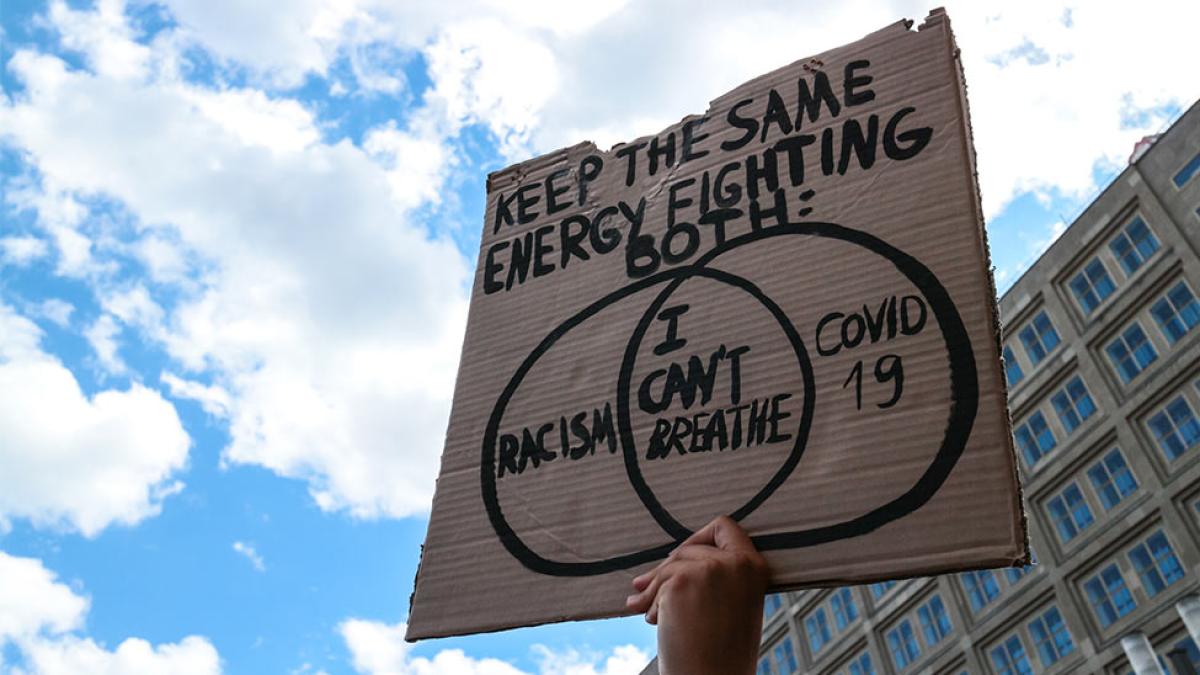
The COVID-19 pandemic and the Black Lives Matter movement during 2020 forever shaped communities around our nation. Capturing first-hand experiences of how these events impacted people is a critical part of providing primary sources for future researchers, and that’s what Assistant Provost and Clinical Associate Professor of History Maria Iacullo-Bird, PhD, set out to achieve with her Oral History Project.
“Interviews provide a way to center personal human experiences during major historical events,” Iacullo-Bird says, “which become even more important as times of crisis and momentous change recede into history. I am excited that Pace undergraduates have generated primary sources to provide first-hand knowledge about watershed historical events.”
The project was developed as part of Iacullo-Bird’s Honors history course, HIS 196H: COVID-19 and Black Lives Matter: Comparative, Crisis-Based Oral History in the American Experience. The course is designed as a Course-Based Undergraduate Research Experience (CURE), which gives students training as oral historians to conduct research. Iacullo-Bird explains that this course in particular “explores the intersectionality between disease and social justice struggles.”
After students gain an understanding of the importance of oral history and develop close listening skills, students are tasked with selecting interview subjects and preparing questions that capture their interviewees’ unique experiences. Recent interviews are stored online on the Oral History webpage as a resource for other students and researchers.
“The interviews I conducted were great experiences,” says film and screen studies major Carter Haskins ’24. He explored the intersectionality between race and the long-term health impacts caused by COVID. “I found that the conversation came naturally. I ended up going to interviews with a prepared list of questions but not using them, and the outcome was fantastic.”
I feel like I will be able to engage in more meaningful research now that I understand the importance of considering how a historical event affects those experiencing it.
Jillian Igneri ’26, added, “During the early stages of my interview preparation, I was excited by the prospect of exploring aspects of recent crises, namely the COVID pandemic and the matters of racial injustice throughout 2020, that I had not experienced through my own eyes as they occurred.” This led Jillian to explore how educators dealt with the disruptions to learning caused by the pandemic as well as how educators’ roles in helping students grapple with social change evolved.
“Oral history has allowed me, as a history major, to engage with my community outside of the traditional academic space,” shared Natalie Filkins ’25, who focused her research on the impact COVID had on the unhoused population of New York City. “I feel like I will be able to engage in more meaningful research now that I understand the importance of considering how a historical event affects those experiencing it.” She adds, “As a historian, I found this project to be incredibly engaging, requiring me to exercise skills I haven’t used in other history courses.”
Na’Mya Sinclair ’26, a nursing student, who researched the Black Lives Matter movement and the function of higher education learning experiences for people of color, plans to continue studying nursing. However, she shares that “this project has significantly informed how I aspire to participate in the Pace University, New York City, and global communities. I am inspired to actively participate in discussions and initiatives that address racial inequalities, particularly within the university setting.”
Iacullo-Bird hopes that students will “deepen their understanding of how to be engaged citizens and problem-solvers in community-building projects.” The skills they develop through the research-based course also enable students to clarify career goals and apply what they have learned both in their studies and the workplace.
Professor Williams weighs in on why JoJo Siwa faces rejection from LGBTQ+ community in USA TODAY
Pop star Jojo Siwa's perceived lack of authenticity and ignorance of queer history has turned members of the LGBTQ+ community against her, experts say, and for tangible reasons.
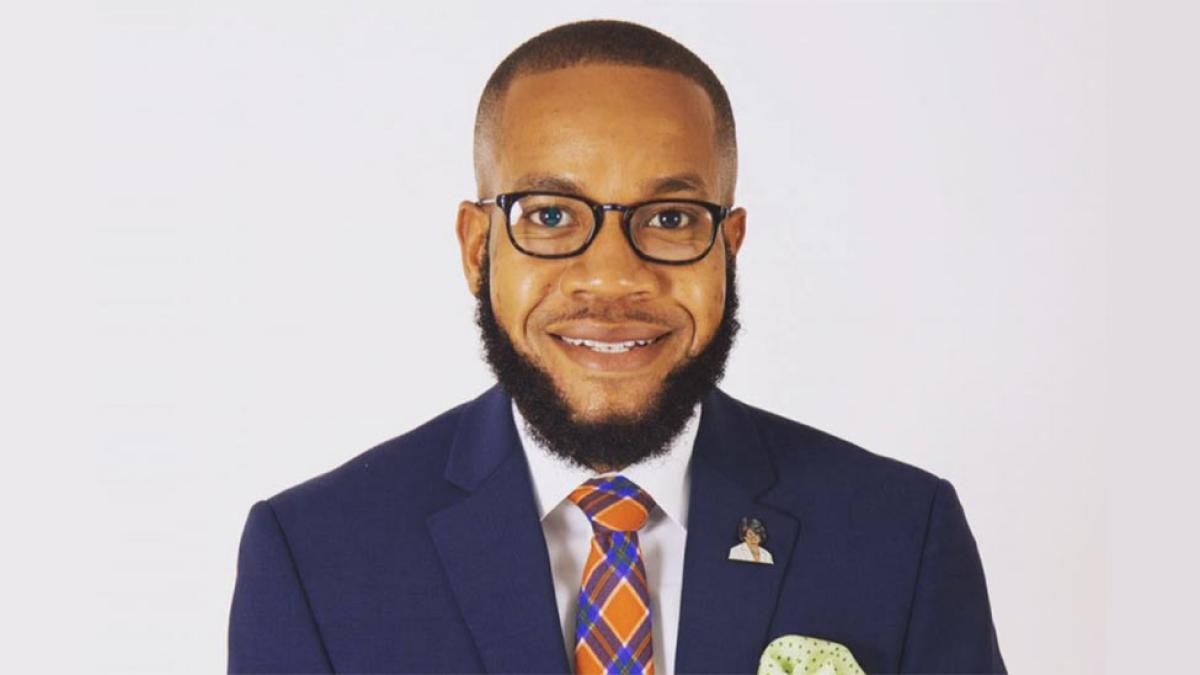
Siwa's perceived lack of authenticity and ignorance of queer history has turned members of the LGBTQ+ community against her, experts say, and for tangible reasons.
"At its core, JoJo’s pop music rebrand exclaims obnoxious 'pick me' behavior, prompts cringe-worthy audience embarrassment and displays an underdeveloped queer-baiting model curated by record executives," says Melvin Williams, PhD, associate professor of communication and media studies at Pace University.
Read the full article about JoJo Siwa at USA TODAY's website.
Samantha Mariano '25 FLEX: Struggle Inspires Purpose
A single mom with two children, Haub Law student Samantha Mariano describes her path to law school as “unconventional at best.” Following her decision to leave an abusive situation, Samantha was referred to Connecticut Legal Services through a local domestic violence organization.
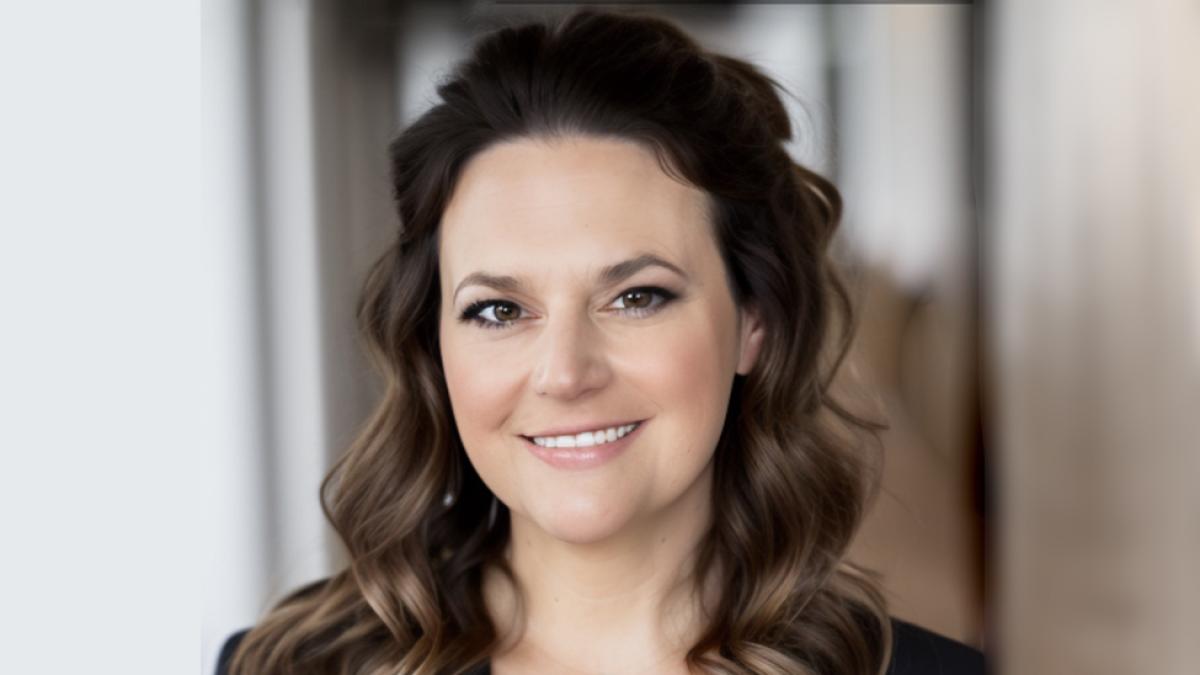

A single mom with two children, Haub Law student Samantha Mariano describes her path to law school as “unconventional at best.” Following her decision to leave an abusive situation, Samantha was referred to Connecticut Legal Services through a local domestic violence organization. “I was represented by an attorney who not only helped me regain my independence but inspired me to dedicate my life to helping others. Through a series of small yet significant steps, I went from homelessness and poverty following my divorce and a horrific custody battle - to going back to school, to finishing my BS, and then to being accepted into law school at almost 40.”
The first in her family to go to law school, it was her grandparents who raised her who instilled in Samantha the importance of hard work and pursuing her dreams. “No matter what challenges I faced, my grandfather, and later my grandmother, would always tell me ‘good thing you’re tough!’ and that became my battle cry which allowed me to persevere through many of life’s challenges.”
At Haub Law, Samantha found her community. “Everyone – from the students to the professors, advisors, and Deans - are genuinely supportive and encouraging. Haub Law is its own little family and it’s extremely obvious when you step foot on campus that you belong. I found a wonderfully accepting and enriching arena in which to grow during my time at Haub Law, one that surpassed my expectations upon entering law school.”
Despite all her responsibilities outside of being a law student, Samantha has immersed herself in all law school has to offer. She serves as the FLEX representative for both Phi Alpha Delta and the Older Wiser Law Students (OWLS) group. Most recently, Samantha has achieved another dream of hers – she was accepted and will participate in Haub Law’s Study Abroad Program at Oxford. “At 41years old, I have the opportunity to fulfill a lifetime dream of traveling to England.”
For Samantha, working full-time as a Trusts and Estates paralegal while pursuing her law degree is a challenge, but also a dream. With her two young children watching her chase her dreams, she just completed another year of law school. “I am looking forward to what the future holds. Balancing motherhood, a full-time job in a busy legal practice, and the rigors of law school has not been easy, but it has been the honor and privilege of a lifetime.”
With graduation on the horizon, Samantha intends to focus her practice primarily on Trusts, Estates and Elder Law, but notes that she will never forget where she came from. “My goal is to return to Connecticut Legal Services eventually and dedicate my pro bono work to helping other survivors of domestic violence. I am always grateful for the opportunities that come my way, and stay active in several Bar Associations, volunteering my time regularly in Free Legal Advice Clinics for vulnerable populations and with the Legal Services of the Hudson Valley. I will never forget what it felt like to be in that position, and the relief I felt in having such an incredible advocate. While my path to law wasn’t exactly paved with gold, I wouldn’t change a thing. The struggle gave me purpose; it gave me a passion that propelled my own life forward in ways I could never have even imagined.”
Political Science Professor on Biden’s Decision to Withdraw from Presidential Race
Clinical Assistant Professor of Political Science Laura Tamman, PhD, spoke to News 12 Westchester on President Joe Biden’s decision to end his re-election campaign amid increased calls from his party to step aside since the presidential debate on June 27.
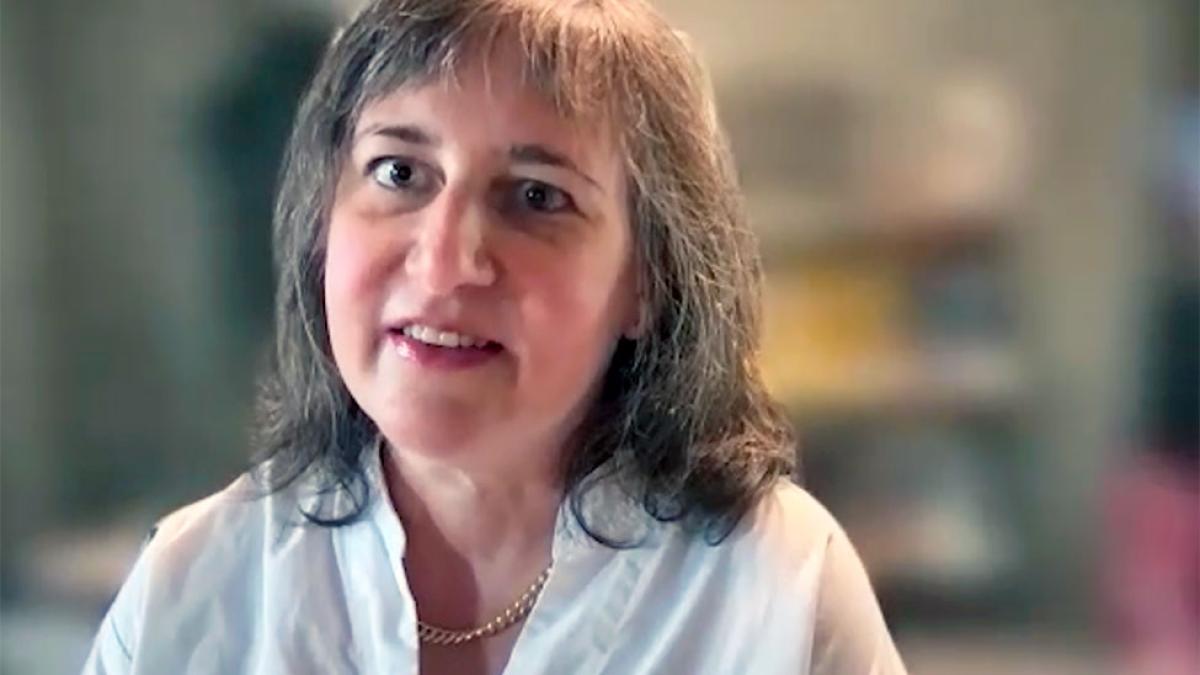
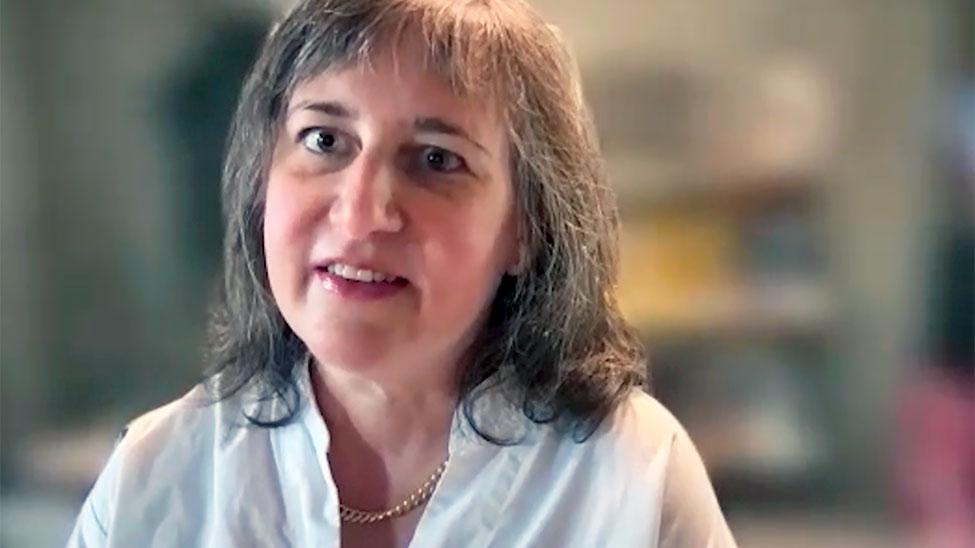
Clinical Assistant Professor of Political Science Laura Tamman, PhD, spoke to News 12 Westchester on President Joe Biden’s decision to end his re-election campaign amid increased calls from his party to step aside since the presidential debate on June 27. “No one has run for office that been this old before, no one has run for office that has been a convicted felon before, and no one has withdrawn from the race this far in the process, “she said.
She believes this announcement was overdue. “I think there was pretty universal agreement the night of the debate what needed to happen.”
On the impact on voting in the Hudson Valley, she said, "I think the likely impact will be an increase in turn out, an increase in excitement and activity."
Read more about President Joe Biden's decision on News 12 Westchester's website.
Doubling the Impact: Q+A With Holly Winn '25
From working closely with dedicated professors to actively engaging in campus life, Sociology/Anthropology and Women’s and Gender Studies student Holly Winn '25 is driven to balance her rigorous academics with meaningful extracurricular involvement.
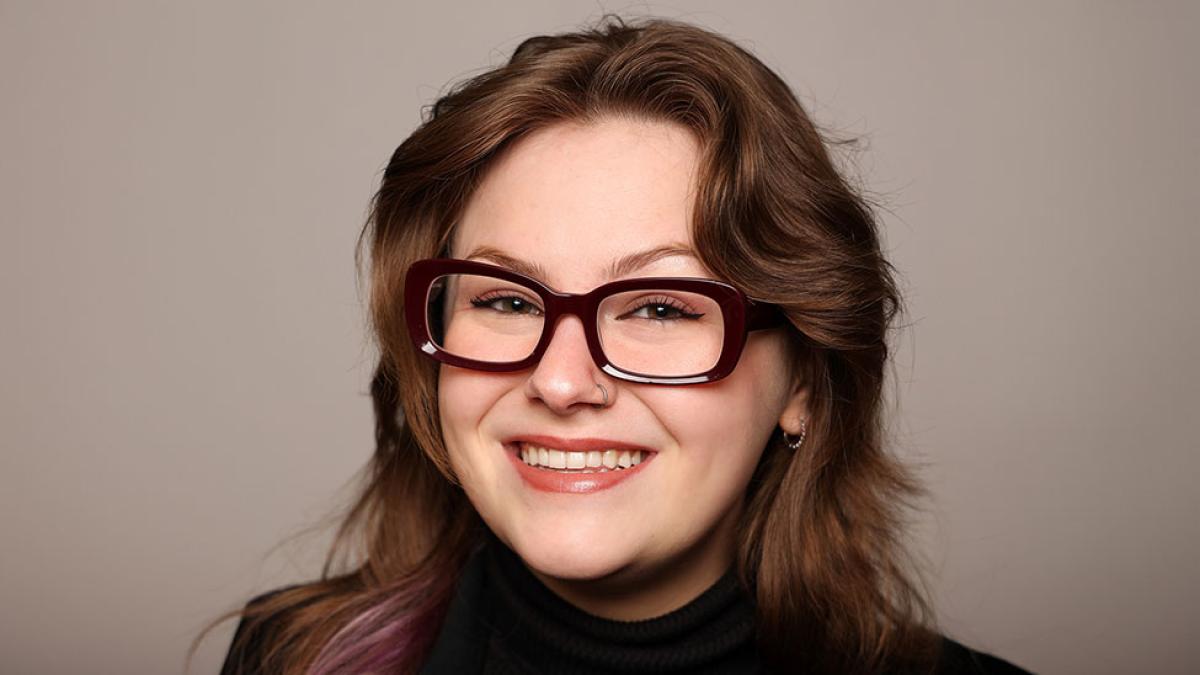
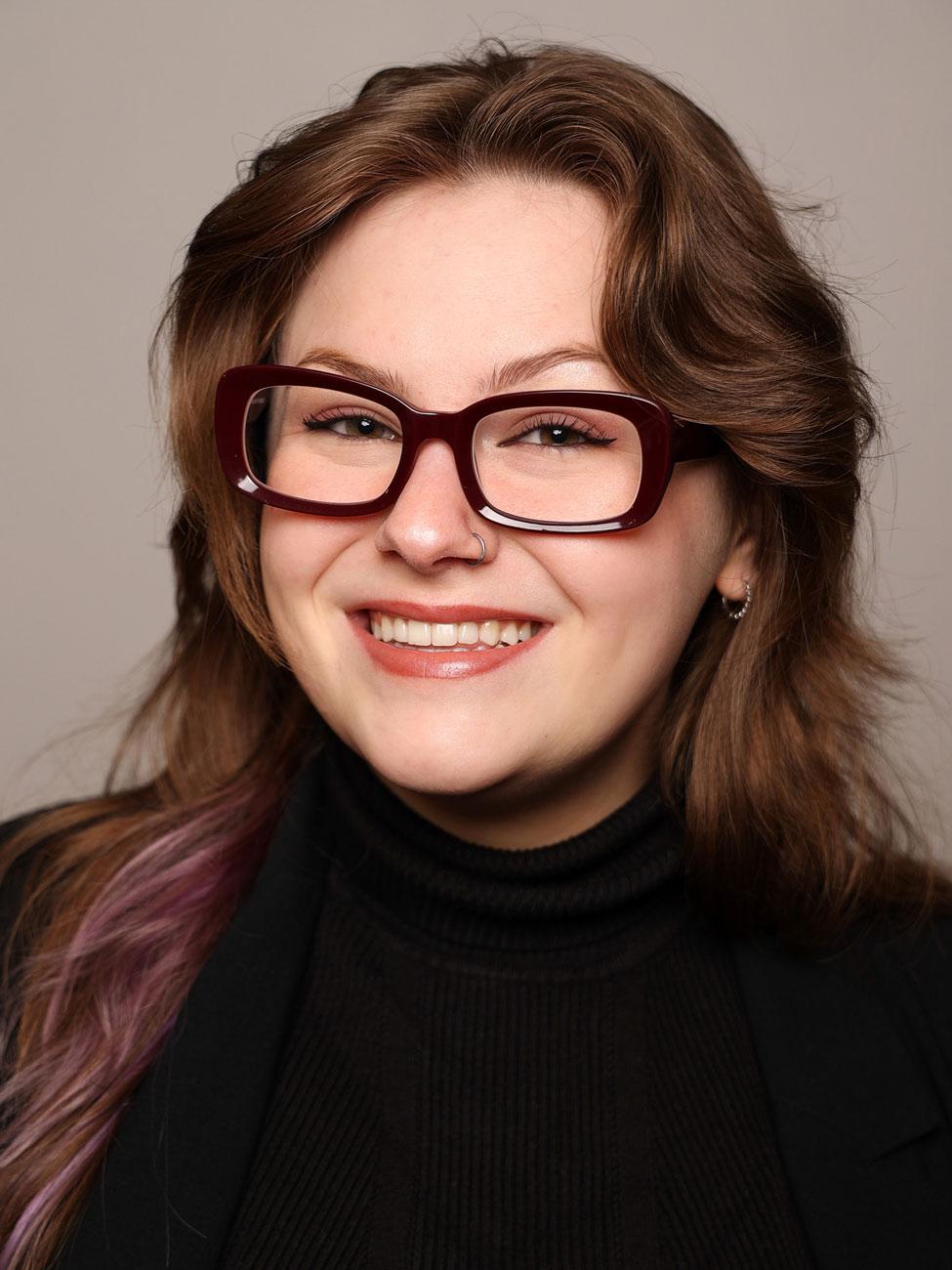
Holly Winn
Class of 2025
Sociology/Anthropology, BA
Women’s and Gender Studies, BA
Queer Studies minor
Psychology minor
How did you become interested in pursuing both a BA in Sociology and Anthropology and a BA in Women’s and Gender Studies?
A passion for sociology seemingly runs in my genes, as my father minored in it in college, and I was also intrigued that Pace’s major combines both sociology and anthropology, which none of the other schools I looked into offered. I selected this major with the intention of going to law school but was excited to learn about the wide range of other options it offers. At Pace, it is very easy to customize your course load for your major based on career interests. With a passion for reproductive health advocacy, I have had the opportunity to fulfill multiple major requirements with classes that are preparing me for my career.
Why did you choose to attend Pace?
My Pace Path is absolutely the definition of unconventionality and how things can (and often will) change. When I graduated high school, I committed to start Pace in the fall, but placed that on hold due to a relationship, instead enrolling in my local community college in North Carolina for a year to complete some general courses. When the relationship ended, I again decided to enroll, so I love to say I got to choose Pace twice. In both cases, the additional draw was not just the city, but the comfort of a small school in a large city.
What have your experiences been like with the Sociology/Anthropology and Women's and Gender Studies departments? Have certain faculty been instrumental in your journey?
The faculty at Pace truly invest in their students' success in the classroom and beyond and are always willing to go the extra mile. Two of my learning community sociology/anthropology professors, Ida Dupont, PhD, and Judith Pajo, PhD, are established researchers who allowed me to build strong connections in both sociology and anthropology and opened countless doors for me. Currently, I am working with Professor Pajo as part of the Summer 2024 Dyson College Student-Faculty Undergraduate Research Initiative on a project entitled, "Unscripted Scripture: Interfaith and Intrafaith Dialogue in Local Communities after October 7." The focus of my work on this project is on members of the LGBTQIA community within Christianity specifically.
The faculty at Pace truly invest in their students' success in the classroom and beyond and are always willing to go the extra mile.
In addition, a monumental contributor to my feeling seen in the classroom and discovering my passion for women’s and gender studies has been Professor Jay Muir and their Men and Masculinity course. Their classroom environment strongly resonated with me because of their ability to engage students in the content with so many different perspectives, and they were the reason I added a double major in Women’s and Gender Studies. I am currently taking another one of Professor Muir’s classes and working alongside them on my Honors thesis.
What other activities and organizations have you been involved with as a student?
While many may think it impossible to double major, double minor, be on a path to graduate within three years with Honors, and sleep eight hours a night, I am living proof that it is. I am also active on campus as a peer educator for the Office of Sexual and Interpersonal Wellness (OSIW), staff writer for The Pace Press, and, starting fall 2024, executive media coordinator for the Student Government Association. These activities have brought me a plethora of friendship and networking opportunities, but more importantly, made Pace feel like home.
What would you like to do upon graduation/what are your career goals?
I have had a lifelong struggle with mental health, specifically anxiety and depression, but it has truly changed my life, as I have transformed this into activism and passion as I look at career paths working with communities I feel connected to. After graduating, I plan to pursue a master’s degree in the social sciences, and truly feel that Pace has prepared me for very competitive graduate programs because of cutting-edge opportunities received. I ultimately want to work in the nonprofit sector, specifically with gender-based violence survivors, on issues related to substance abuse, and on sex education/sex work policy and education.
What advice would you like to give to our current students?
It always gets better and many things that are so stressful currently will not matter to you nearly as much in a year's time. Push yourself in your classes and give the energy you have to give, but recognize when burnout is looming and engage in self-care. Beyond academics and career opportunities, seize the endless options in the city to explore; no successful student can continue to work hard without a healthy balance between school and socialization.
Elisabeth Haub School of Law at Pace University Professor Leslie Y. Garfield Tenzer Recognized with 2024 Faculty Award for Excellence in Teaching
Professor Leslie Y. Garfield Tenzer has been named the recipient of Elisabeth Haub School of Law at Pace University’s 2024 Faculty Award for Excellence in Teaching. The Faculty Award for Excellence in Teaching recognizes that outstanding pedagogy occurs in a variety of settings at the Law School—it can be found in courses of all sizes and types, in teachers with diverse styles, and across subject matters.
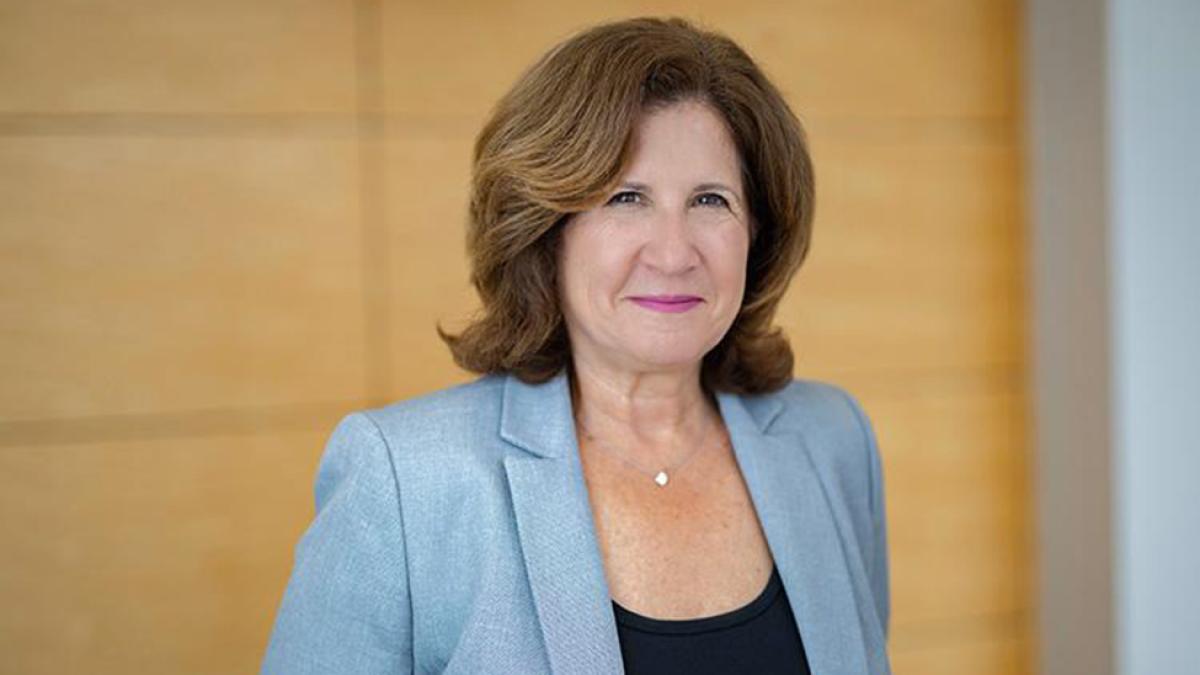
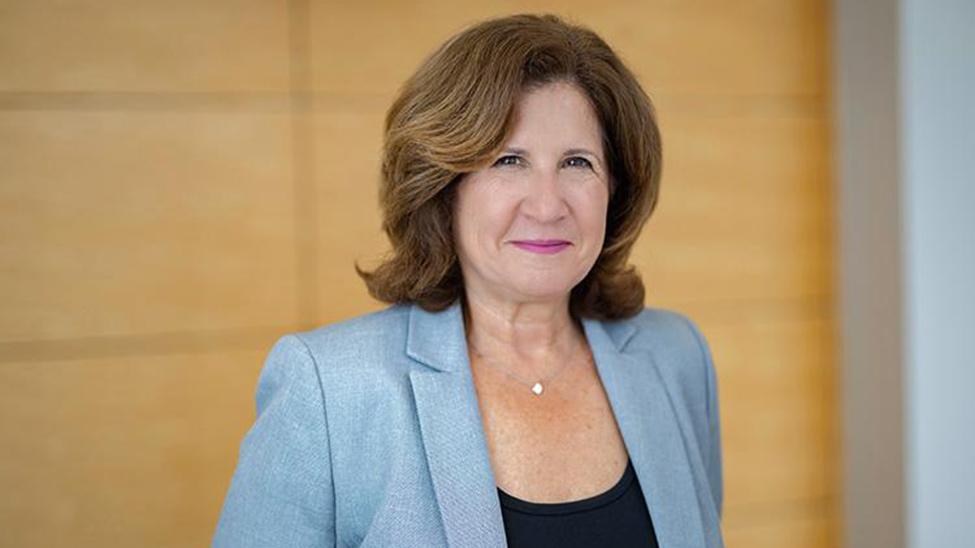
Professor Leslie Y. Garfield Tenzer has been named the recipient of Elisabeth Haub School of Law at Pace University’s 2024 Faculty Award for Excellence in Teaching. The Faculty Award for Excellence in Teaching recognizes that outstanding pedagogy occurs in a variety of settings at the Law School—it can be found in courses of all sizes and types, in teachers with diverse styles, and across subject matters. Each spring, the Faculty Development Committee selects as a recipient of the award a member of the tenured or tenure-track faculty or a visiting professor with a contract longer than one year in duration. The award typically is based on the faculty member’s teaching during the current academic year.
Professor Alexander K.A. Greenawalt, chair of the Faculty Development Committee, remarked: “The award recognizes Professor Tenzer’s general excellence in teaching as well as her innovative and successful efforts to convert her first-year contracts course into an experiential learning format. In her practice-based course, Professor Tenzer gave her students the opportunity to develop critical thinking and problem-solving skills that are integral to the legal profession. Professor Tenzer’s effort is inspiring and was well received by her students who thanked her at the end of the semester with a standing ovation.”
Professor Tenzer feels honored to have been selected by her peers to receive this recognition. “When I am teaching, my goal is always to fully engage my students and make the class as practical and useful as possible,” said Tenzer. “Converting my first-year contracts course into an experiential learning format allowed the students to learn how to resolve real life legal issues. Throughout the semester, there was a priority put on lawyering skills over memorization, which, as a bonus, is in line with the new format of the bar exam as well. It is fulfilling to know that my colleagues recognize the unique format this class took on.”
Professor Leslie Y. Garfield Tenzer is the Semicentennial Faculty Scholar at the Elisabeth Haub School of Law at Pace University. She served as the James D. Hopkins Professor of Law Chair from 2019–2021. Professor Tenzer's scholarship and teaching bridge the worlds of theory and practice, with a particular focus on regulating conduct in the digital age. Prior to coming to Haub Law, Professor Tenzer was a legislative attorney in the Legal Division of the Council of the City of New York. Her responsibilities included drafting legislation, organizing public hearings and coordinating with city agencies and interest groups on the city's legislative process. She currently teaches and writes in the areas of Commercial Law, including Contracts and UCC Article 2, Criminal Law, Torts and Social Media Law. Professor Tenzer's most recent scholarship focuses on legal issues concerning social media.
In addition to her regular teaching at Haub Law, Professor Tenzer is the host of two podcasts, Law to Fact, a podcast for students studying the law, and Legal Tenzer: Casual Conversations on Noteworthy Legal Topics. She frequently works with recent law graduates, court administrators, judges, lawyers, educators, legislative and executive branch officials on projects to improve the communication and administration of justice. She previously served as the chair of the AALS Section on Academic Support. Professor Tenzer has received several awards during her tenure at Pace, including the Goettel Prize for Faculty Scholarship (2020, 2012), the Ottinger Prize for Faculty Achievement (2012–2013; 2003–2004), and Professor of the Year (2014) (voted by the 2014 graduating class).
In Memoriam: Professor Vanessa H. Merton, 1949–2024
Professor Merton began her legal education career at New York University School of Law, and was a founding faculty member of CUNY Law School, and a Mellon and National Endowment for the Humanities Fellow. She joined Haub Law’s faculty in 1989 and served as Associate Dean for Clinical Education and Executive Director of John Jay Legal Services, while creating and teaching clinics in Access to Health Care and Prosecution of Domestic Violence, and innovative programs aimed at providing legal services to those in need.
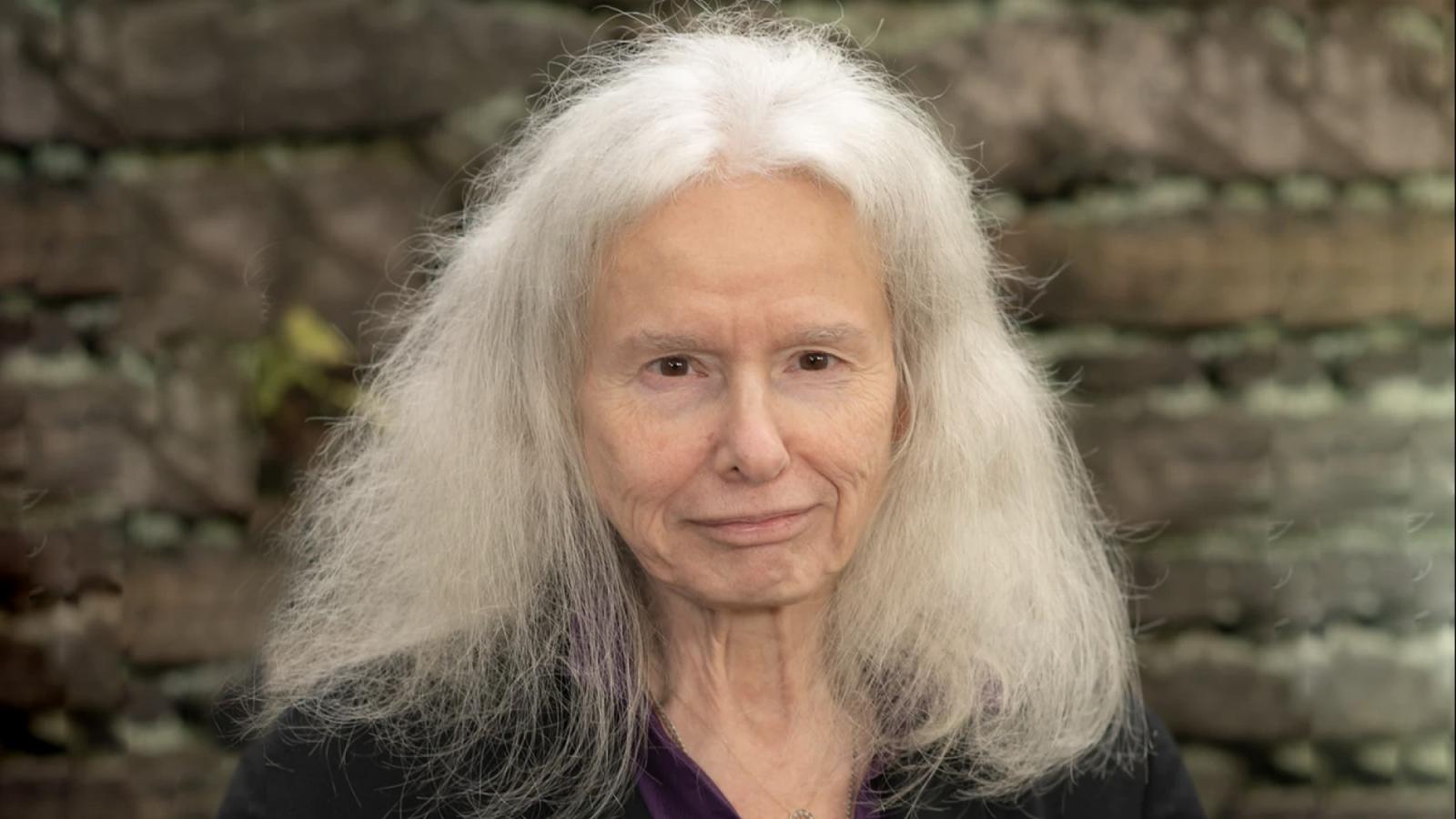
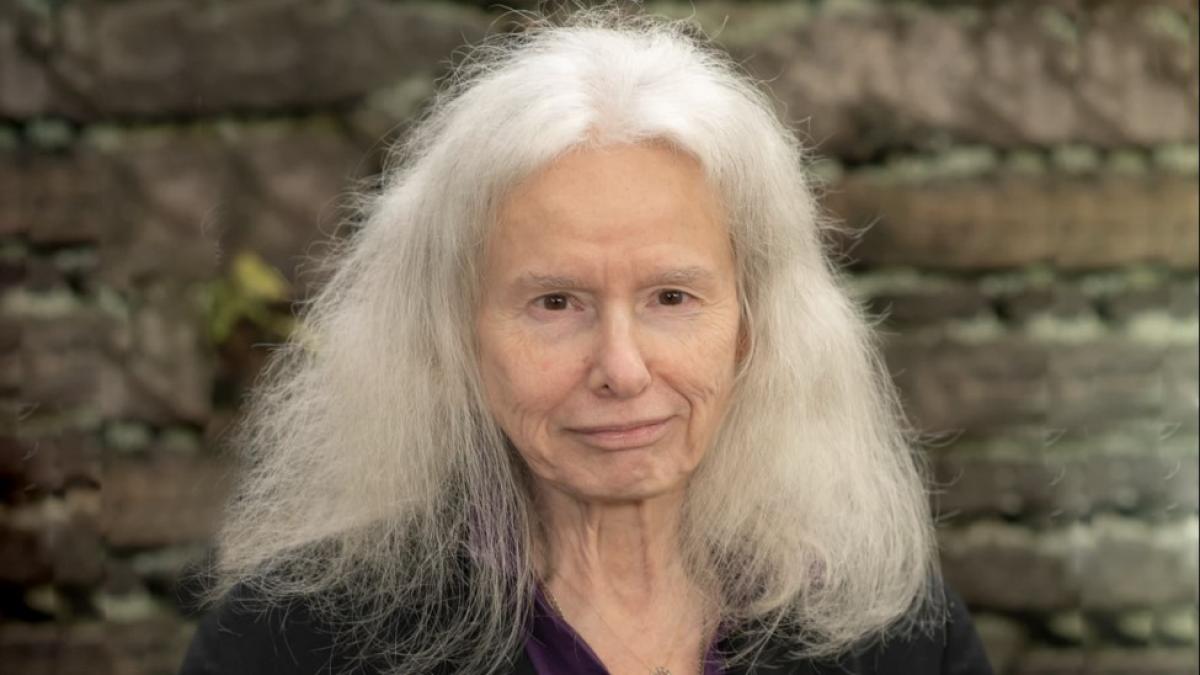
Professor Merton began her legal education career at New York University School of Law, and was a founding faculty member of CUNY Law School, and a Mellon and National Endowment for the Humanities Fellow. She joined Haub Law’s faculty in 1989 and served as Associate Dean for Clinical Education and Executive Director of John Jay Legal Services, while creating and teaching clinics in Access to Health Care and Prosecution of Domestic Violence, and innovative programs aimed at providing legal services to those in need.
In 2005, Professor Merton founded the Pace Immigration Justice Clinic and served as its Executive Director until earlier this year. In this role she was a steadfast advocate for her clients and a role model for our students — providing representation on applications for asylum or family-based status, in removal proceedings at state and federal detention facilities, and on petitions for crime victims and juvenile immigrants.
Her commitment to her cause was truly admirable, demonstrated through her incredible work ethic, her investments in her students, and her personal involvement in the community. She assisted travelers detained at airports under the 2017 Trump Executive Orders, spent spring breaks volunteering at immigrant detention centers on the southern border, and established a 200-student emergency operation to assist people affected by 9/11. She was also a passionate advocate for protecting the rights of all American voters. But perhaps Vanessa’s greatest legacy has been as a teacher and mentor to generations of Haub Law students, many of whom she inspired to pursue careers in immigration justice or as public interest lawyers.
“Vanessa was not only the visionary leader of John Jay Legal Services and our Immigration Justice Clinic, she was a legendary legal expert, an advocate for her clients, and a mentor to countless lawyers in our region who stand in the breach for the underrepresented and underserved,” said Haub Law Dean Horace E. Anderson. “Her altruistic spirit and tireless dedication to serving others has left an indelible mark not only on the Law School, but broadly in the community.”
Learn more about the remarkable life and career of Professor Merton in her digital Festschrift.
Those interested in sending a gift are encouraged to make a contribution in her name to support the Vanessa Merton Immigration Justice Fellowship established by her family to continue her legendary work in the Pace Immigration Justice Clinic.
The Law School will hold an on-campus Tribute and Memorial Service honoring Professor Merton on September 12 at 6:00 p.m. All faculty, staff, alumni and friends are invited to join us in this celebration of her extraordinary life and career. To ensure space for what is sure to be a widely-attended event, please RSVP HERE so that we may plan accordingly.
Immigration Justice Fellowship Established at Law School
Westfair Communications (The Westchester and Fairfield County Business Journals) reports the Elisabeth Haub School of Law has created the Vanessa Merton Immigration Justice Fellowship, a key component of the school’s Immigration Justice Clinic focused on ensuring the legal system’s just treatment of immigrants in the Hudson Valley and local New York Metropolitan region.
What's Next For Trump's Classified Documents Case? Experts Weigh In
Elisabeth Haub School of Law Professor Gershman speaks with ABC News about a federal judge's decision to dismiss Donald Trump's classified documents case.
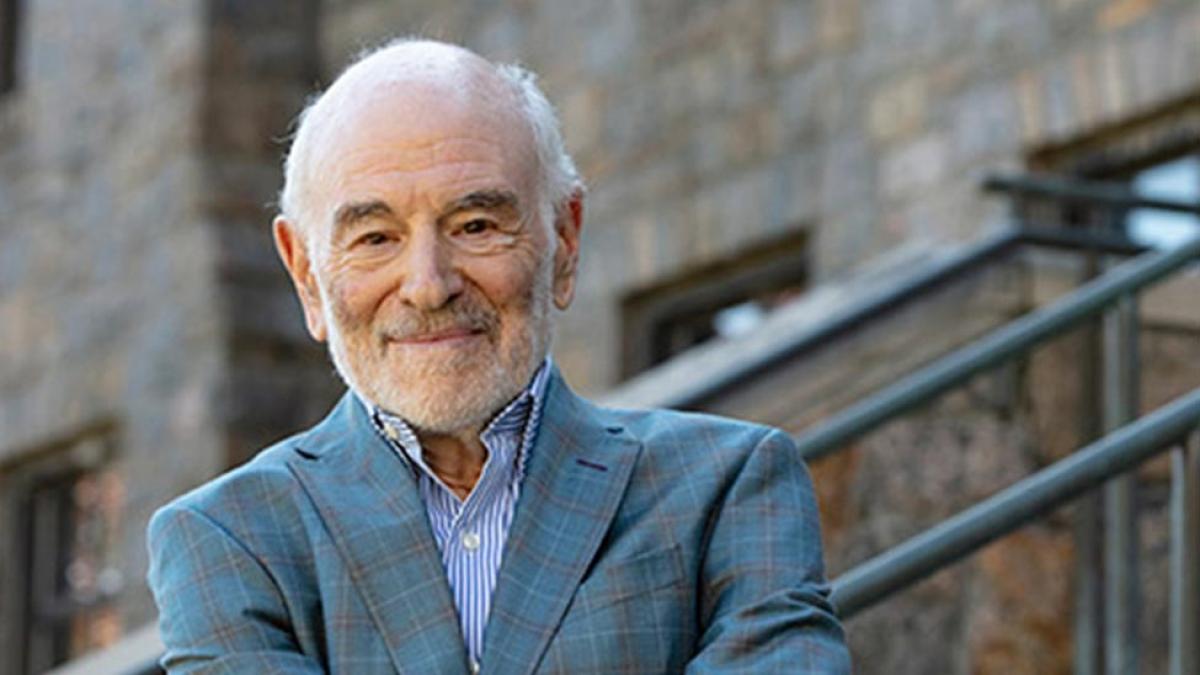
Pace University Gives Students Hands-On Cybersecurity Experience
Commercial Integrator features an article on Pace University’s Seidenberg Cyber Range, which provides hands-on cybersecurity experience students.